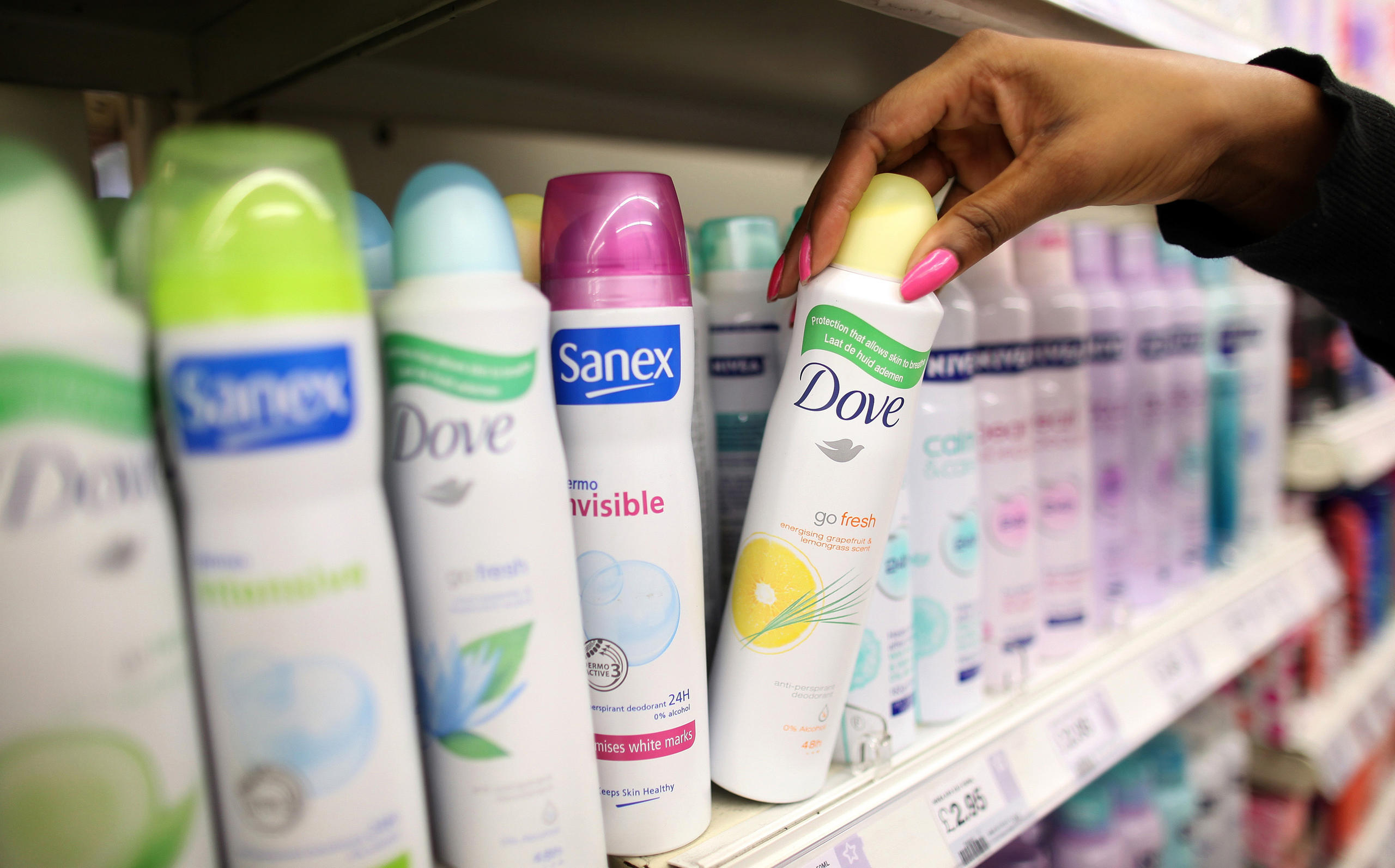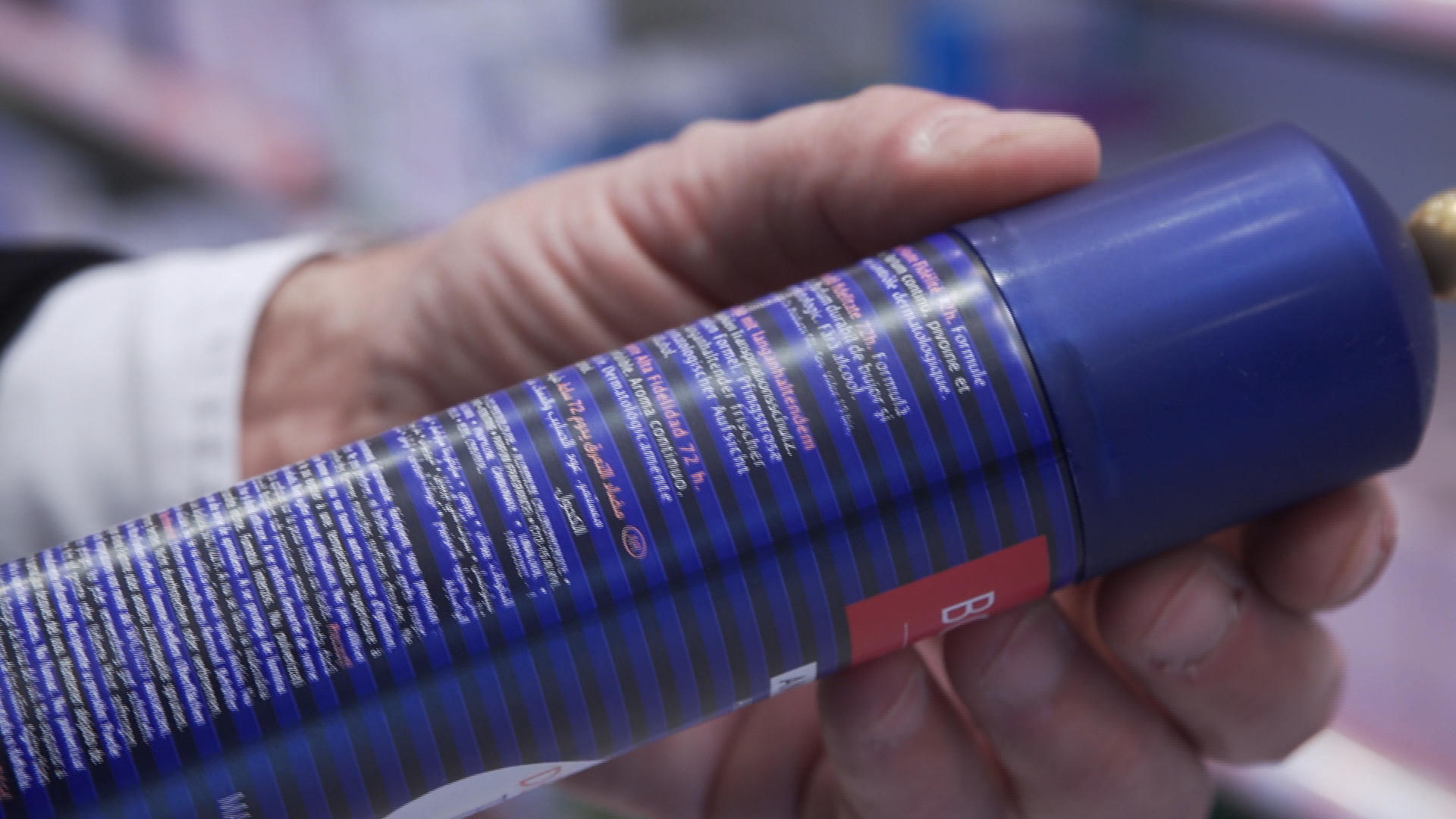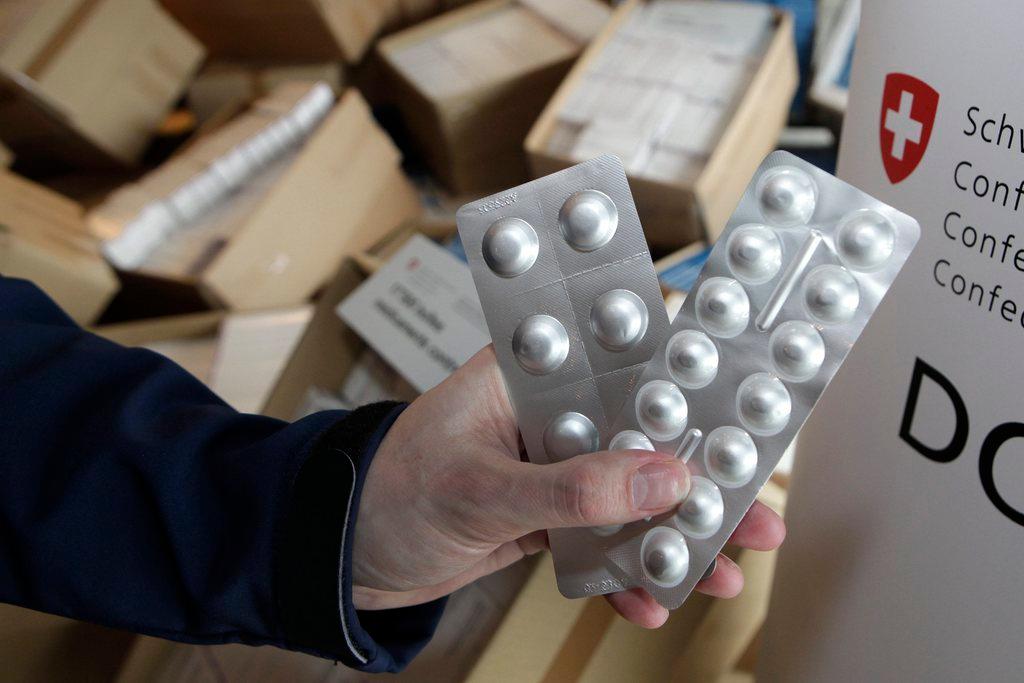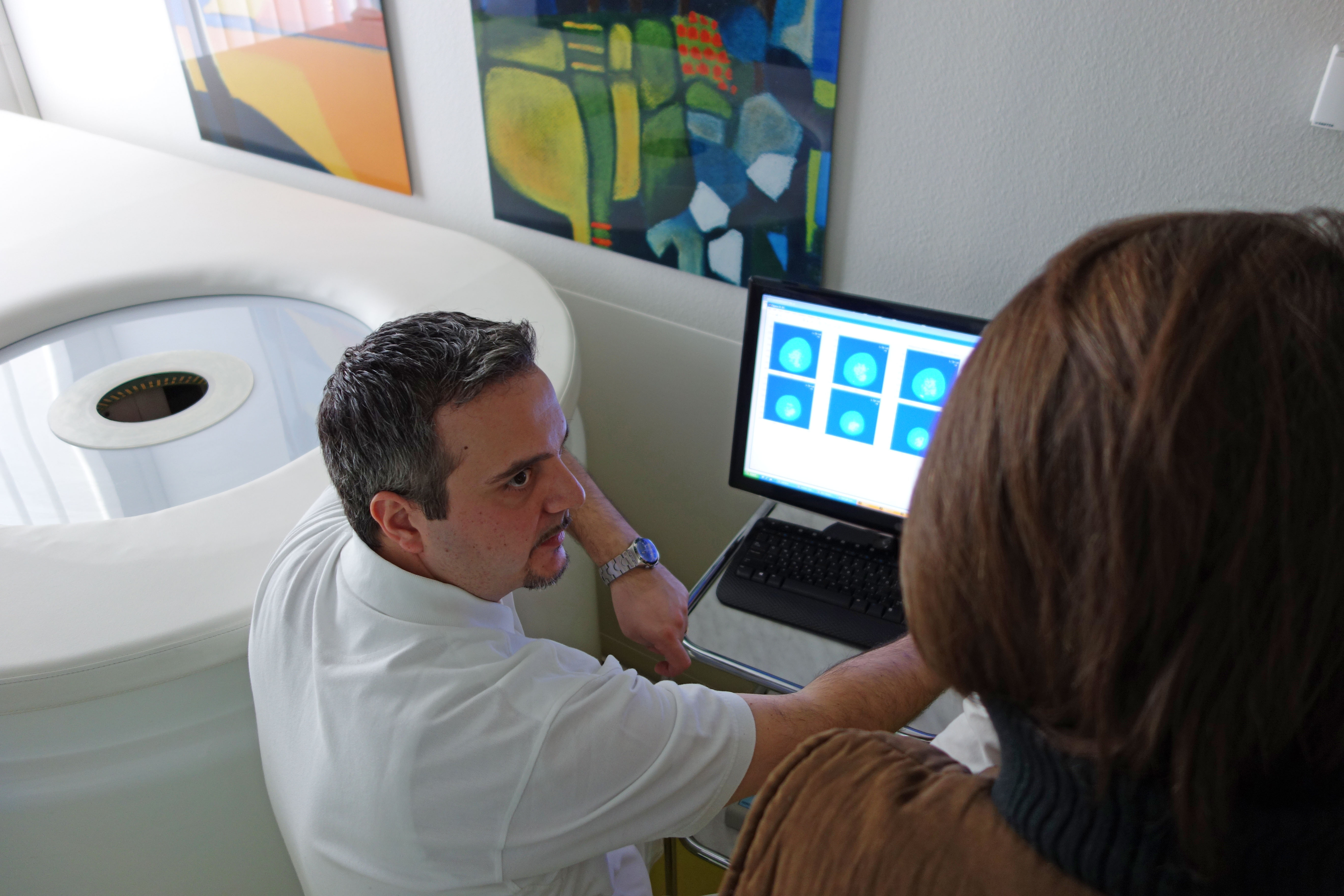Should anti-perspirants bear warning labels?

As the summer heats up, a Swiss political bid to label or ban products containing aluminium salts has again stirred up the debate over whether anti-perspirant deodorants are safe to use. Here’s why people are worried, and what the science says.
In May, Lisa Mazzone of Switzerland’s Green Party asked Parliament to consider the risks associated with the use of aluminium salts in anti-perspirants, and to analyse the research on them with an eye toward adding warning labels or banning them entirely.
In her argument before the House of Representatives, Mazzone said that demonstrating a clear causal link between aluminium salts and breast cancer would require long-term epidemiological research, involving a large-scale sample of women and up to 20 years of study.
But she urged her fellow politicians to act now.
“When in doubt, the precautionary principleExternal link must take precedence to guarantee the health and safety of the population,” Mazzone declared.
Mazzone’s call to action was inspired by a 2016 studyExternal link by André-Pascal Sappino, an honorary professor at the University of Geneva and oncologist at the city’s Grangettes Clinic. His research, published in the International Journal of Cancer, demonstrated that mouse mammary tissue exposed to aluminium chloride in culture went on to develop tumours after being injected back into mice.
“Our observations provide experimental evidence that aluminium salts could be environmental breast carcinogens,” the authors wrote.
Although critics argue that the study failed to demonstrate a causal link between normal deodorant use and human breast cancer, the results quickly made international headlines, dredging up long-standing public fears over the risks associated with using antiperspirants and other aluminium-containing products.

More
The science of safety
Aluminium, aluminium, everywhere
Aluminium is the third most abundant element on earth after oxygen and silicon, and is non-toxic to humans in low quantities. However, very high levels of exposure – for example, in factory staff who work around aluminium fumes or dust – are known to cause respiratory and neurological problemsExternal link.
Compounds like aluminium chloride, aluminium chlorohydrate complexes, and aluminium zirconium complexes, which are common active ingredientsExternal link in underarm deodorants, work by forming a physical barrier that temporarily ‘plugs’ sweat ducts, reducing moisture and bacterial growth.
Most of the arguments defending the use of aluminium salts point to the fact that there is little evidence that a significant amount of aluminium is absorbed by the skin, and any that is absorbed is typically much less than the amount we take into our bodies every day via food, water, soil and air. According to the US Centers for Disease Control, the average American adult consumes 7-9 mg of aluminium per day via food alone.
Cancer scare
One of the most frequently echoed concerns – and the one that appears to be supported by Sappino’s research – is that the aluminium salts become absorbed by the skin of the armpit, where they may promote tumour growth in nearby breast tissue.
Sappino believes that the significant rise in breast cancer rates over the last dozen years, particularly in women between 30-40 years of age, can be at least partially attributed to underarm shaving – which can irritate or damage the skin – followed by the application of antiperspirants.
But according to the American Cancer SocietyExternal link, the original link between deodorant and breast cancer can be traced back to an anonymous 1990s chain email, which claimed that deodorants cause breast cancer by infiltrating the nearby lymph nodes with toxins.
The society refutes these assertions, citing a 2002 epidemiological study comparing 813 women with breast cancer to 793 women without the disease, which demonstrated “no link between breast cancer risk and antiperspirant use, deodorant use, or underarm shaving.”
Aluminium and Alzheimer’s?
Alzheimer’s disease is another serious illness that often comes up in discussions about the risks of aluminium salts. Research conducted in the 1960s and 70s first raised suspicion after increased amounts of the element were observed in the brains of dementia sufferers.
But the Alzheimer’s Association’sExternal link official stance is that scientific research doesn’t support the idea that “everyday” sources of aluminium – including deodorants, foil, and pots and pans – increase the risk of the disease.
Vaccine additives
Another common use for aluminium salts is in small quantities as an adjuvant in certain vaccines. Adjuvants are added to increase vaccine efficacy by provoking provoke a stronger response from a patient’s immune system. But the use of aluminium in vaccines appears to have been swept up into recent – scientifically unsupportedExternal link – public concern over the role of mercury, another vaccine additive, as a cause of autism.
However, aluminium levels in vaccines are very low and carefully controlled, and according to the US Food and Drug AdministrationExternal link, have a 60-year safety record and are only rarely associated with adverse reactions.
Purge prevention
A final common concern linking antiperspirants and human disease is the idea that ‘plugging’ sweat ducts by means of aluminium salts prevents the body from expelling toxins. While it’s true that armpit sweat can eliminate some materials the body wants to be rid of, the reality is that most toxin elimination is done by the kidneys.
Labelling debate
The bottom line is that currently, there is no scientific consensus that aluminium salts cause any of the above illnesses. But as Sappino’s study shows, the research is contradictory, and varies widely in terms of sample size, control methods, and even test subjects – both human and animal.
As Mazzone pointed out, the only way to conclusively establish safety or risk is to invest large amounts of time and money in long-term epidemiological studies, using human subjects. That’s costly and time-consuming, which is why some like Mazzone argue that precautions – in the form of a ban or a warning label describing potential risks of aluminium salts – should be taken now.
It can be argued that requiring such a pre-emptive warning label would be wasteful at best, and scare-mongering at worst. On the other hand, some manufacturers are already leaping onto an aluminium-free label bandwagon, having spied a marketing opportunity as consumers reach for products advertised as being more ‘natural’.
In 2014, the FRC, French-speaking Switzerland’s consumer protection bureau, conducted a study on aluminium-free deodorants sold in seven of the country’s most popular supermarkets and pharmacies. They found that the aluminium-free label is a key selling point, appearing on nearly 25% of deodorants.
“I don’t know if it’s important yet to say stop commercialising aluminium-containing deodorants, but it’s good to look closer and talk about it,” Joy Demeulemeester, head of the FRC’s health policy team, tells swissinfo.ch.
“There are so many things a consumer has to look at, that if there’s something dangerous or suspicious, in the end it’s easier if it’s not on the market. It’s the role of the state and the market to take care of our health first.”
Current Swiss regulations
In Switzerland, aluminium salts in deodorants, toothpastes and cosmetics are regulated by the Federal Act on Foodstuffs and Commons Objects. According to the Federal Food Safety and Veterinary Office, a 2014 evaluation by the European Commission concluded that there is no indication that aluminium-salt-containing personal care products increase the risk of cancer or Alzheimer’s disease, but also that scientific data are still insufficient to establish safety limits for these compounds with absolute certainty.
The Food Safety Office therefore “closely follows the progress of investigations into possible usage restrictions of aluminium and examines, in agreement with the EU, possible measures.” Its official recommendation to the public is to avoid applying aluminium-containing deodorants to irritated, damaged, or recently shaved skin.

In compliance with the JTI standards
More: SWI swissinfo.ch certified by the Journalism Trust Initiative













You can find an overview of ongoing debates with our journalists here . Please join us!
If you want to start a conversation about a topic raised in this article or want to report factual errors, email us at english@swissinfo.ch.